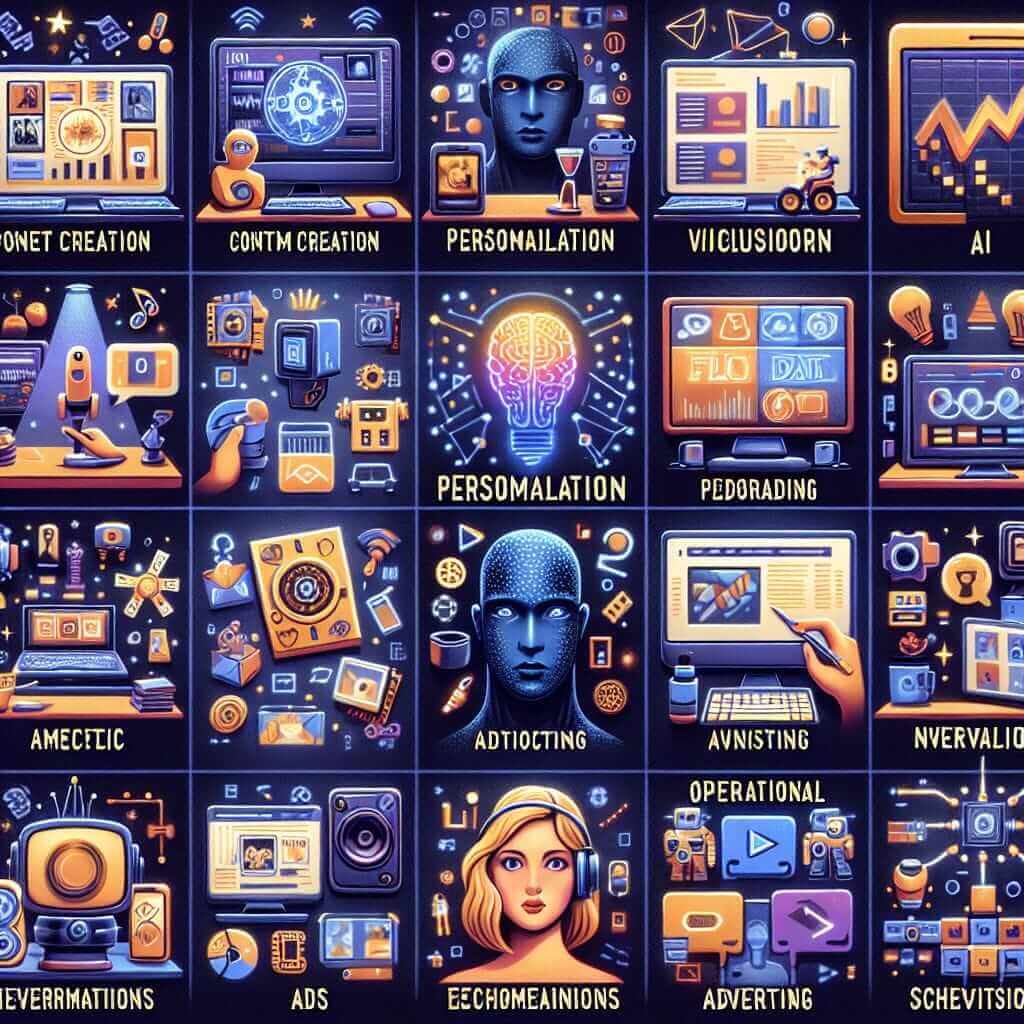The IELTS Reading test often features passages from newspapers, journals, books, and magazines, making it crucial for candidates to develop both their reading skills and their understanding of current affairs. As AI technology continuously evolves, its integration into various sectors, especially media and entertainment, has become a popular topic in academic discussions and examinations. This article delves into “How AI is transforming the media and entertainment industry?” analyzing its impact and providing a sample IELTS Reading passage along with related questions and answers for practice.
The Importance of the Topic
The role of AI in transforming industries is a topic that frequently appears in IELTS Reading passages due to its relevance and significance. Understanding this subject can give candidates an edge, keeping them prepared for similar themes in their actual exam. Historically, themes around technology and innovation, like AI, have appeared regularly and are predicted to do so in future tests.
Sample IELTS Reading Passage
Title: The Role of AI in Transforming the Media and Entertainment Industry
Artificial Intelligence (AI) is revolutionizing the media and entertainment industry, ushering in a wave of innovation that is reshaping the way content is created, distributed, and consumed. The integration of AI technologies is not only enhancing user experiences but also optimizing operational efficiencies within the industry.
AI in Content Creation
AI’s capacity to generate content autonomously is one of its most impactful applications in this sector. Programs developed with machine learning algorithms can create music, write scripts, and edit videos. For instance, AI-driven platforms such as OpenAI’s GPT-3 are capable of producing high-quality written content that resembles human authorship. This has profound implications for media producers who can now rely on AI to produce content at an unprecedented scale and speed.
Enhancing User Experience
Streaming services such as Netflix and Spotify leverage AI to personalize user experiences. These platforms use sophisticated algorithms to analyze user preferences and behavior, thereby recommending content that aligns with individual tastes. This level of personalization not only increases customer satisfaction but also promotes longer engagement periods on these platforms.
AI in Advertising
The advertising landscape is also experiencing a seismic shift due to AI. Machine learning algorithms are used to analyze vast amounts of consumer data, enabling advertisers to create hyper-targeted campaigns. These algorithms can predict consumer behavior and preferences with remarkable accuracy, ensuring that advertisements are more relevant and effective.
Operational Efficiencies
Beyond content and advertising, AI is streamlining operations within the media and entertainment industry. AI-driven tools can automate mundane tasks such as metadata tagging, video transcription, and rights management. This not only reduces operational costs but also allows employees to focus on more creative and strategic activities.
Challenges and Ethical Considerations
Despite its advantages, the integration of AI into media and entertainment presents certain challenges and ethical concerns. Issues such as data privacy, the potential loss of jobs to automation, and the risk of biased algorithms need to be carefully managed. Additionally, the authenticity of AI-generated content remains a topic of debate, raising questions about originality and intellectual property.
 AI Transforming Media and Entertainment
AI Transforming Media and Entertainment
Sample Reading Questions
Multiple Choice
-
According to the passage, what is one way AI enhances user experience in streaming services?
- A. By generating music automatically
- B. By recommending personalized content
- C. By reducing operational costs
- D. By analyzing metadata
-
What is a major advantage of AI in content creation?
- A. Personalized user experiences
- B. High accuracy in predicting consumer behavior
- C. Producing content at scale and speed
- D. Automating routine tasks
True/False/Not Given
-
AI can autonomously generate high-quality written content.
- True
- False
- Not Given
-
The passage states that AI-generated content is always considered original.
- True
- False
- Not Given
Matching Headings
- Match the heading with the appropriate paragraph:
- AI in advertising: ____
- Challenges and ethical considerations: ____
- Operational efficiencies: ____
Answer Key and Explanations
-
B – By recommending personalized content
- Explanation: The passage clearly states that AI is used to personalize user experiences by recommending content that aligns with individual tastes.
-
C – Producing content at scale and speed
- Explanation: AI allows media producers to produce content rapidly and in large quantities, which is highlighted in the first paragraph on content creation.
-
True
- Explanation: The passage mentions that AI-driven platforms like OpenAI’s GPT-3 are capable of producing high-quality written content.
-
False
- Explanation: The passage raises concerns about the authenticity of AI-generated content, indicating that it is not always considered original.
-
- AI in advertising: Paragraph discussing machine learning algorithms and hyper-targeted campaigns.
- Challenges and ethical considerations: Paragraph discussing data privacy, job automation, biased algorithms, and content authenticity.
- Operational efficiencies: Paragraph discussing automation of tasks like metadata tagging and video transcription.
Common Mistakes and Tips
- Overlooking Key Details: Many candidates overlook specific details that are crucial for answering multiple-choice and True/False/Not Given questions. Always pay close attention to information provided.
- Misinterpreting Content: Ensure you fully understand the passage before attempting to answer questions. Read each paragraph carefully and relate it to the given questions.
Vocabulary
- Autonomously (adv): /ɔˈtɒnəməsli/ – Independently; without human intervention.
- Solemnity (n): /səˈlɛmnɪti/ – The state or quality of being serious and dignified.
- Implication (n): /ˌɪmplɪˈkeɪʃən/ – A conclusion that can be drawn from something, although it is not explicitly stated.
Grammar Focus
- Present Continuous Tense: Used for actions happening right now or current ongoing actions.
- Example: “AI is revolutionizing the media and entertainment industry.”
- Structure: Subject + am/is/are + V-ing
Recommendations
- Regular Practice: Daily reading practice is fundamental. Use reputable sources to read about current technologies and innovations.
- Focus on Vocabulary: Enhance your vocabulary, specifically on trending topics like AI, by reading widely.
- Utilize Sample Tests: Practice with past IELTS reading passages and simulate test conditions to improve your timing and accuracy.
Incorporating these strategies into your study plan can significantly improve your performance in the IELTS Reading section.

